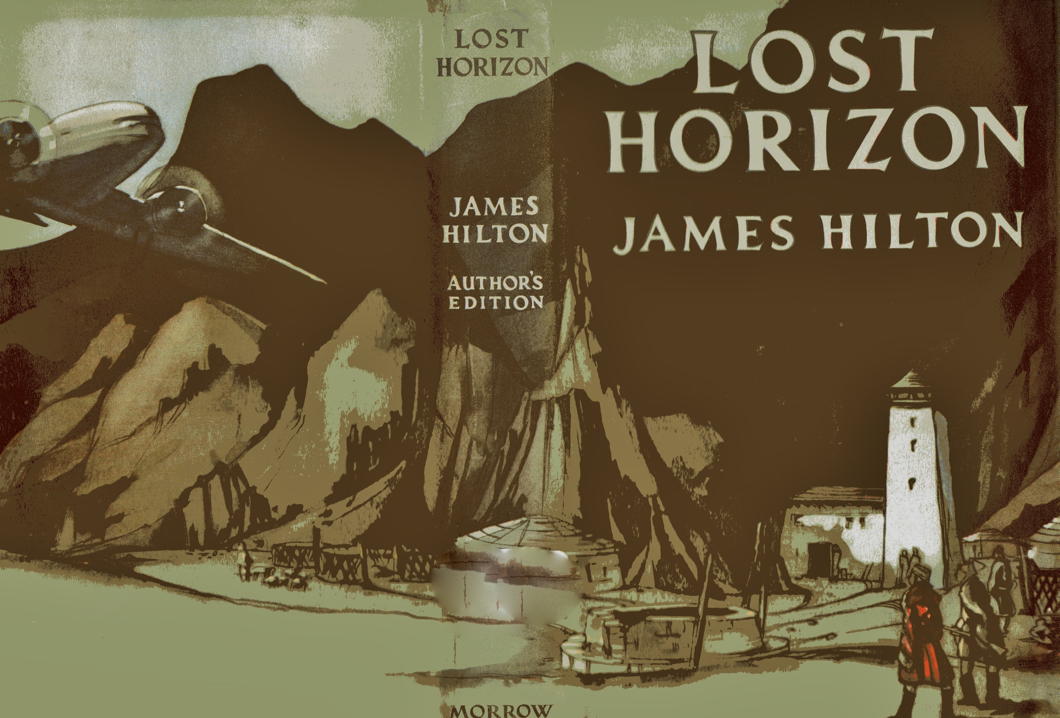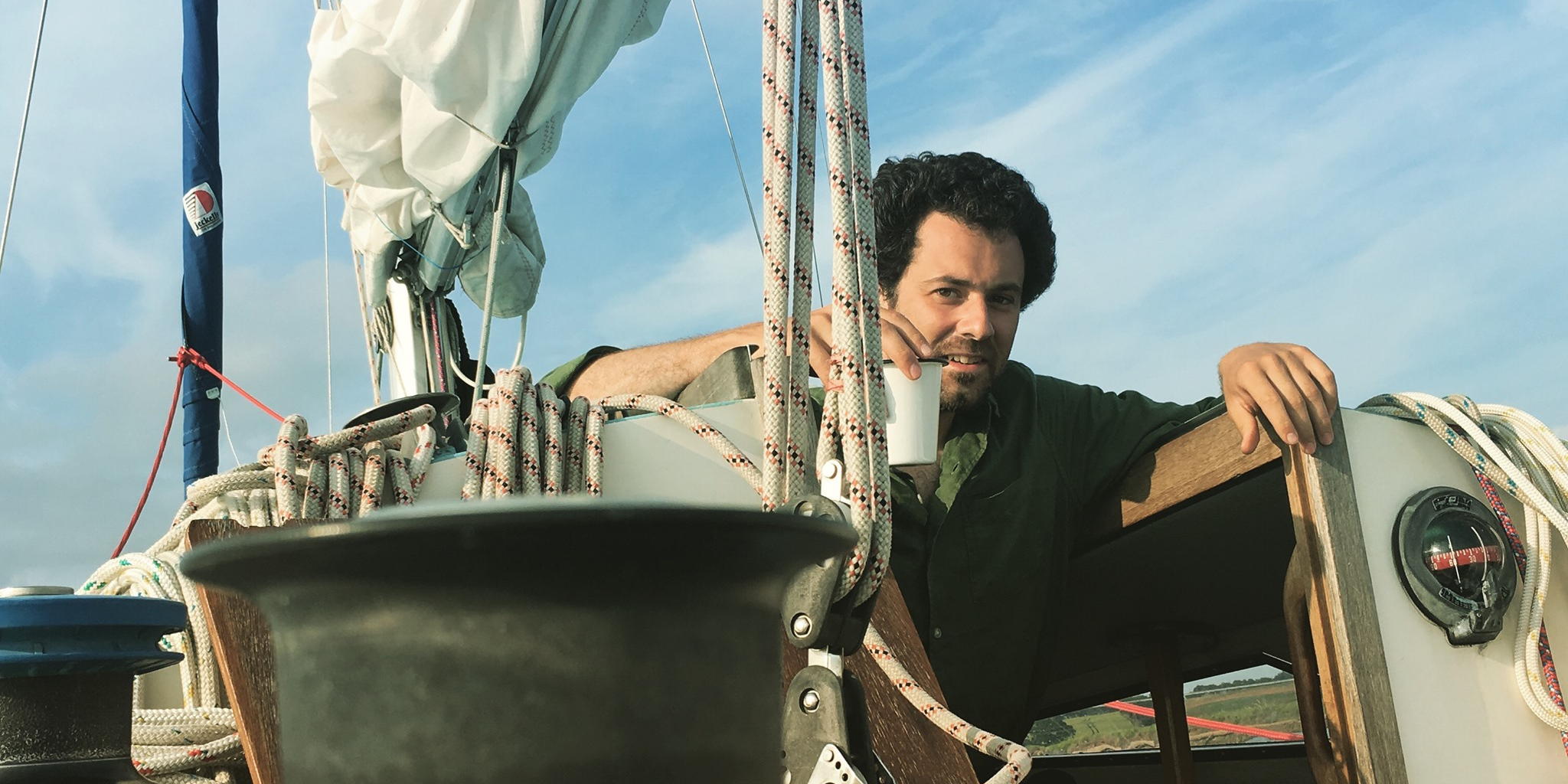
About Andrew Cusack
 Writer, web designer, etc.; born in New York; educated in Argentina, Scotland, and South Africa; now based in London.
Writer, web designer, etc.; born in New York; educated in Argentina, Scotland, and South Africa; now based in London. read more
News
Blogs
Reviews & Periodicals
Arts & Design
World
France
Mitteleuropa
Knickerbockers
Argentina
The Levant
Africa
Cape of Good Hope
Netherlands
Scandinavia
Québec
India
Muscovy
Germany
Academica

Get thee to a Lamasery
In defence of Lost Horizon
by ALEXANDER FRANCIS SHAW
Death hath no sting because I know that — on the other side of the planet — glass elevators whisper fifty-six storeys from a marble lobby to rooms of crisp white sheets and burgundy damask. The carpets are thick, the tables polished. Decanters are flushed with guava and grape. In a kaleidoscope of silver and ice, glasses of salad and sorbet are heaped with pearlescent foam, salmon and beluga.
And in one corner, in another time, Alexander Shaw fell asleep in the late afternoon, cheek pressed against the silk wing of an armchair as his gaze followed the plunge of a falcon from the Peak, through the skyscrapers, and out over Victoria Harbour. A soft audio moquette of Morrecone and Mahler accompanied the CNN news ticker and extraneous weather synopses: Sydney — sun… Los Angeles – overcast… Doha – sun… Cape Town – rain…
Please excuse the fetishism. My point deserves this tantric preamble.
If Pugin had been a Qing rather than a Victorian he might have made a start to all this, but today the backlit Onyx, the Pacific sixteen-storey silk frieze, the Qipao uniforms, and the Olympian scale of everything behove only the mighty Orient.
Why so? The Island Shangri-La Hotel is named for the fictional utopia in James Hilton’s Lost Horizon. And right there you have the problem: ‘utopia.’ The martial cultures of the East don’t comprehend the pre-echoes in that word.
Credit where it is due, the sublimation of the individual into the Gestalt (I’ll call it Gung-Ho, because that sounds like a legitimate school of oriental philosophy) is in stark contrast to the game we play with ourselves the West. Because they’ve never been saddled with accountability for the state of their societies, the Chinese haven’t had the opportunity to be disillusioned by their own idealism. A Chinese man has never had to look at himself in the mirror and realise that he buggered things up by voting for Hitler or joining a Black Lives Matter march.
Absent any higher purpose, we, on the other hand, must seek redemption for each hypocrisy and failure of our great civilisation, dumbing down in hand-wringing apologia for our very existence. Thus have we developed a misnomered ‘meekness’ of niceness, indecision, and half-measures. To believe in our superiority is to be saddled with shame – and shame is a force distinct from guilt in that it seeks remission by reference to others’ perception. You can quietly abort a child with Down Syndrome provided that you demonstrate your humanity by promoting BAME representation, carbon austerity, and the moxie of women who have the mystique of cement mixers.
A second example: the lobby-girl at the Grand Hyatt, Shanghai. Given that half the wealth of the Orient passes through those doors, some central planning committee evidently felt it prudent that the city’s 24 million citizens be combed for the sweetest smile to greet it. When I returned, breath held, a year later, she had been matched by another matchless angel.
Which brings us to the human source of utopianism – the quest for eternity. The plane-wrecked protagonists of Hilton’s novel experience a Himalayan valley of youth governed by an AWOL and arguably mad 250-year-old Luxembourgish priest. Father Perrault governs Shangri-La from a lamasery of almost obscene opulence (imagine – green bathtubs!). The guests are tastefully divided in their credulity about whether the society is an illusion and the book was devoured by an escapist West suffering the Great Depression.
Rifling my free copy in Hong Kong, I judged it the Englishman’s analogue to the continental cults whose glorious living and glorious dead are distanced by a Napoleonic boulevard of culture and commerce where the stick and carrot are applied. It seemed fortunate that the British are only really any good at stoking a frisson for utopian demise and, as the distant red flags fluttered and my Mao-faced banknotes smirked at me from their money clip, I designated Lost Horizon – and all this – to a fantastic past which would be swept away by Western humility and moderation.
I was wrong and, what is more, I’m glad I was wrong.
Since the collapse of any credible European adversary, Britain has turned inwards in its quest for maudlin schadenfreude. Our woke egalitarianism means everyone must de-mask or debunk any superiority as somehow an act.
I hazily recall a heavy session at the London Ritz at which the bar-chef challenged me to draw my sgian-dubh to establish whether I was carrying an offensive weapon. I was quick-witted enough to reveal my purist stand on another wager of the kilted gentleman which duly precipitated a less troublesome ejection from the premises. But how did we sink to this? Is there anywhere outside of the glittering palaces of sinister dictatorships where a man can live honestly without some spiv trying to trip him up?
More poignantly, perhaps, how can the professionals themselves avoid clientele who know their own job from experience and think they have ‘made it’ because they bussed tables in their student days?
Lost Horizon has at its heart a provocation to serve which the maladjusted West will now struggle to perceive. Utopia should be viewed not as a deception but rather the absence of the contempt for the familiar. The point of Shangri-La is that it was built by strangers in exotic lands for strangers in exotic lands. Lo-Tsen, for whom the valley was home, is repelled by its treasures and risks her life in order to leave. Hugh Conway – the knackered British diplomat at the centre of the novel – appears to have risked his life in order to return, inspiring the enchanted discussion among pilots which opens the book on the darkening concourse of Templehof airport in 1933.
Like the bedraggled Conway, we must keep our eyes fixed on utopia so that our journey becomes a pilgrimage with a view to one day opening the doors of our own Shangri-La.
And so much for the better if nobody follows.

Search
Instagram: @andcusack
Click here for my Instagram photos.Most Recent Posts
- Bicycle Rack April 29, 2024
- Burns Tower April 19, 2024
- Patrick in Parliament March 18, 2024
- Articles of Note: 13 March 2024 March 13, 2024
- Cambridge March 9, 2024
Most Recent Comments
Book Wishlist
Monthly Archives
Categories



Very interestingly said.
But I’m not quite sure what was being interestingly said.